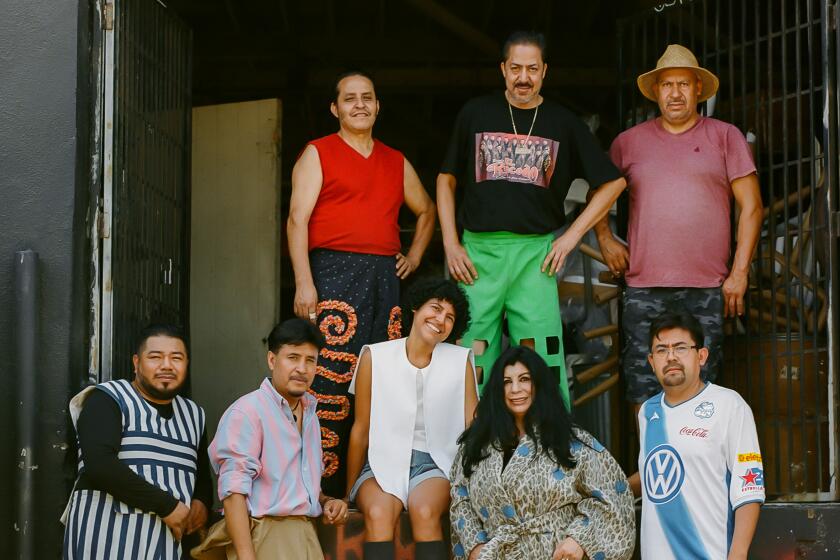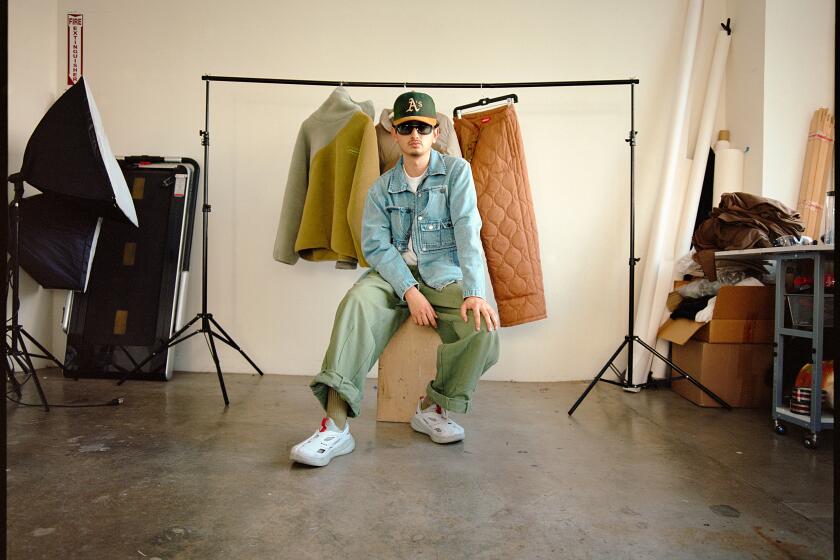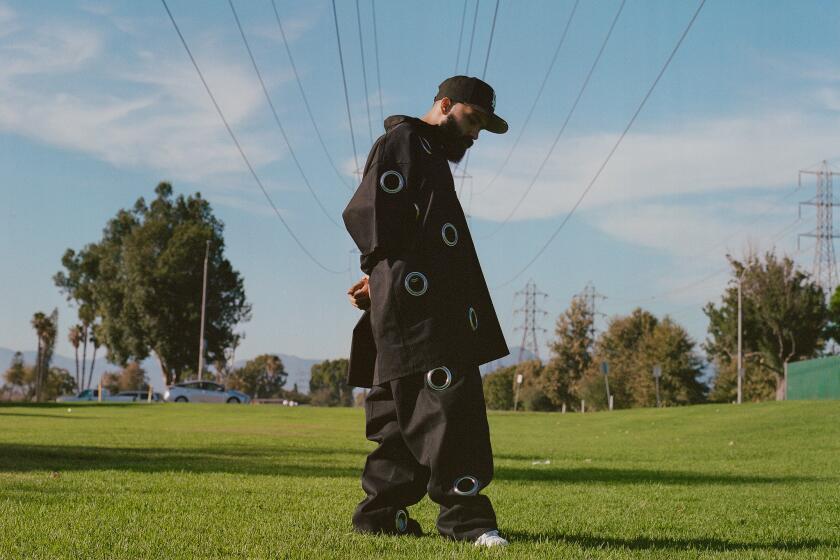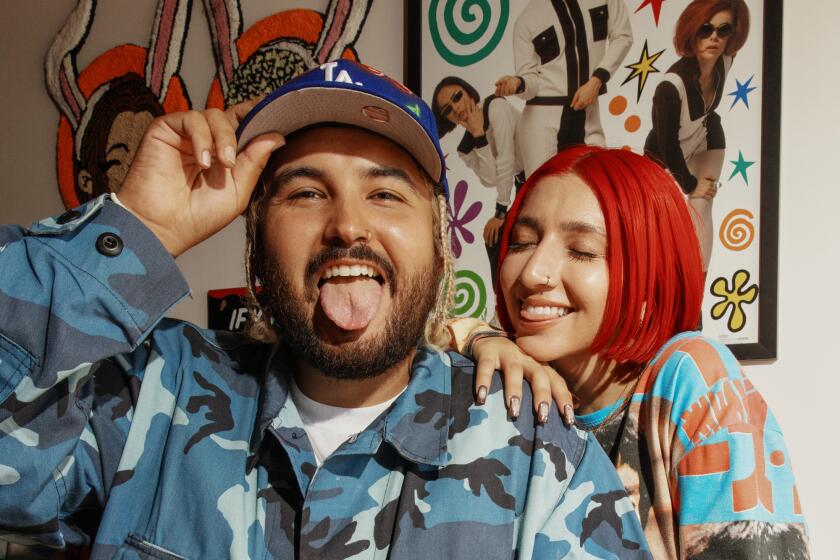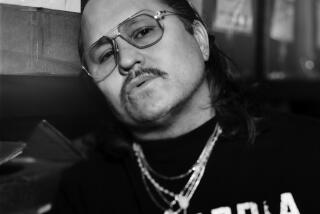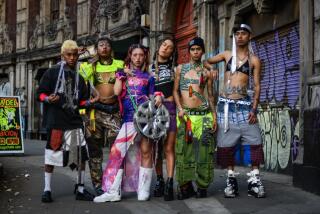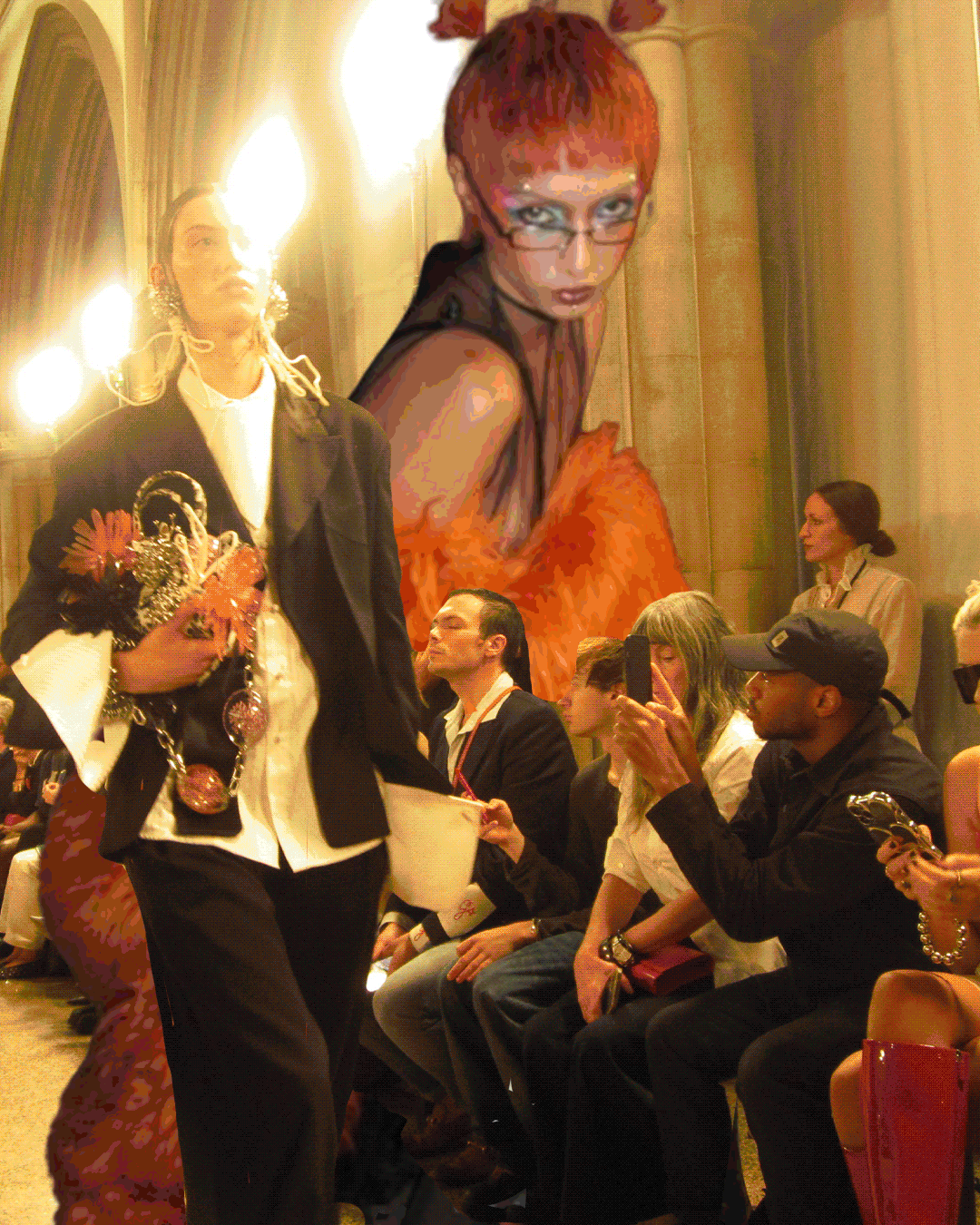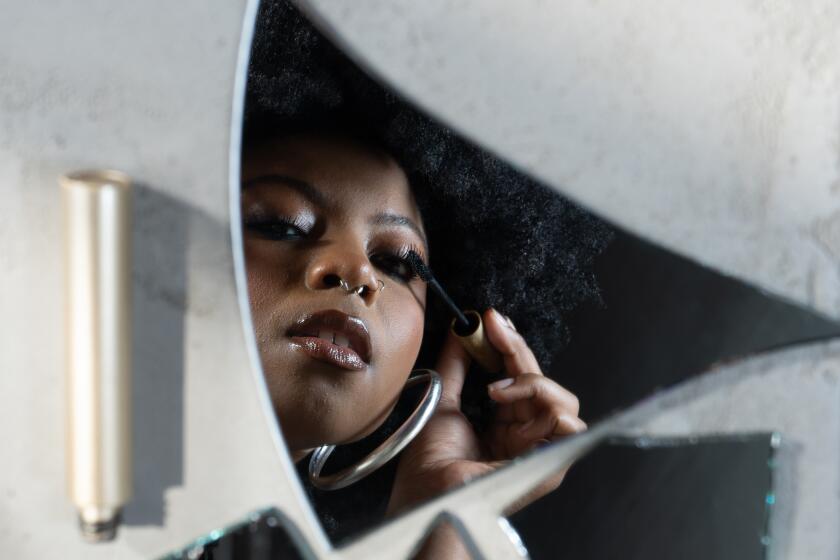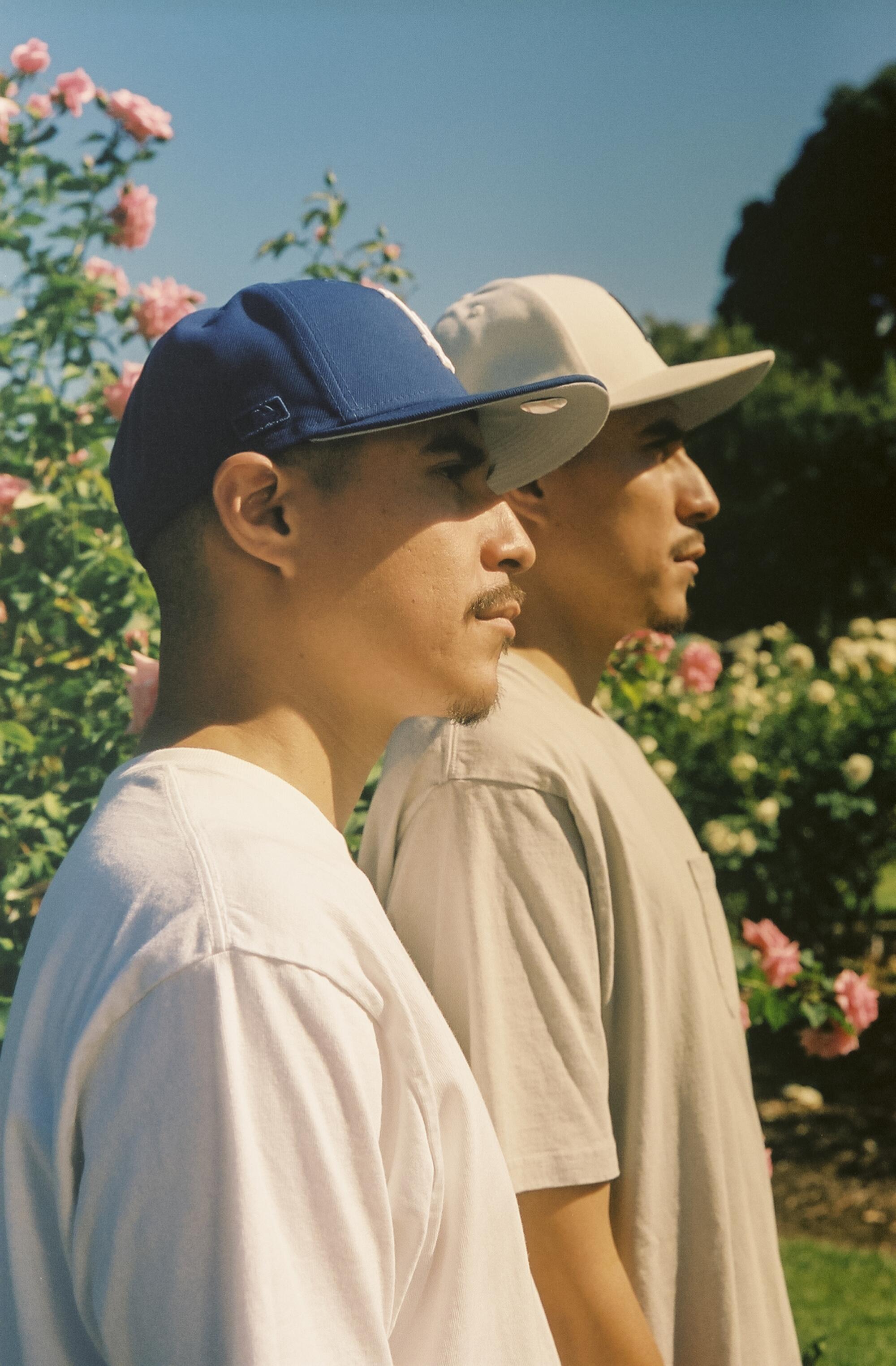
This story is part of Image issue 13, “Image Makers,” a celebration of the L.A. luminaries redefining the narrative possibilities of fashion. Read the whole issue here.
For Hector and Jose Polio, being identical twins and being models aren’t that different, honestly. Both dynamics deal with languages unspoken. Being able to communicate coded messages through your body and vibration. It’s an overlap the brothers use to their advantage: When they’re on set — let’s say for Levi’s, or Burberry, or Nike, or Converse, or Calvin Klein, or Kids of Immigrants, or any of the other campaigns they’ve done over the last few years — something telepathic happens.
In understanding what must be done next to capture a moment, words aren’t necessary between them. Should it be tender? Tough? Should someone’s arm be up and the other’s arm be wrapped around? The brothers have this conversation without uttering a word, resulting in photographs that feel connective.
From their modeling work in L.A. and far beyond, with shoots that take over reposts on IG Stories for days after, you know Hector and Jose’s faces (identical, yes, but also distinct in shape, expression and even beauty marks) but you know their special twin energy even more. “We just have this aura that we carry every time we step in a room,” says Hector. “We have this higher charisma.”
Born and raised in South Central, the 27-year-old Leo siblings are finding their place in front of the camera, with the shoots only getting more creative, and the campaigns more high-profile. They’re also running their fashion brand, Gente Unida, which just participated La Bodega Baque, a pop-up at New York Fashion Week. But as much as their star continues to rise, at the end of each shoot back in L.A., you already know they’re still going to get some tacos on the way home. “People see us doing these shoots, but at the end, they also see us as the twins from the block,” says Jose. “We’re always going to come back to that environment.”
Hector: We do have our own…
Jose: Yin and Yang. There’s been times where — it’s some weird supernatural thing — our bodies do the exact opposite of each other.
Hector: It’s more of a feeling. It’s like our souls are talking to each other.
Jose: Our souls are resonating with each other. It’s weird. Our work shows it better than we could tell it.
Jose: People would bring up, “Hey, have you guys ever thought of modeling? Have you ever thought about doing a shoot together?” We actually didn’t pay too much attention to it. But the question would always come up from different people. I remember we just paused one day and looked at each other like, “OK. Let’s just do this.”
I was interning for a fashion showroom, it’s called the Foundation. They were the ones who exposed me to what street fashion is. I think it was back in 2013. They were the people who asked me, “Yo, don’t you have a brother? You guys should try to model these clothes.” We started putting these clothes on and telling our friends to take a photo real quick. People would just automatically react.
We didn’t think of modeling, but it kind of chose us, especially in Los Angeles. It’s big, but small — it’s who you know. Because of that, our names were able to drop in with the right people.
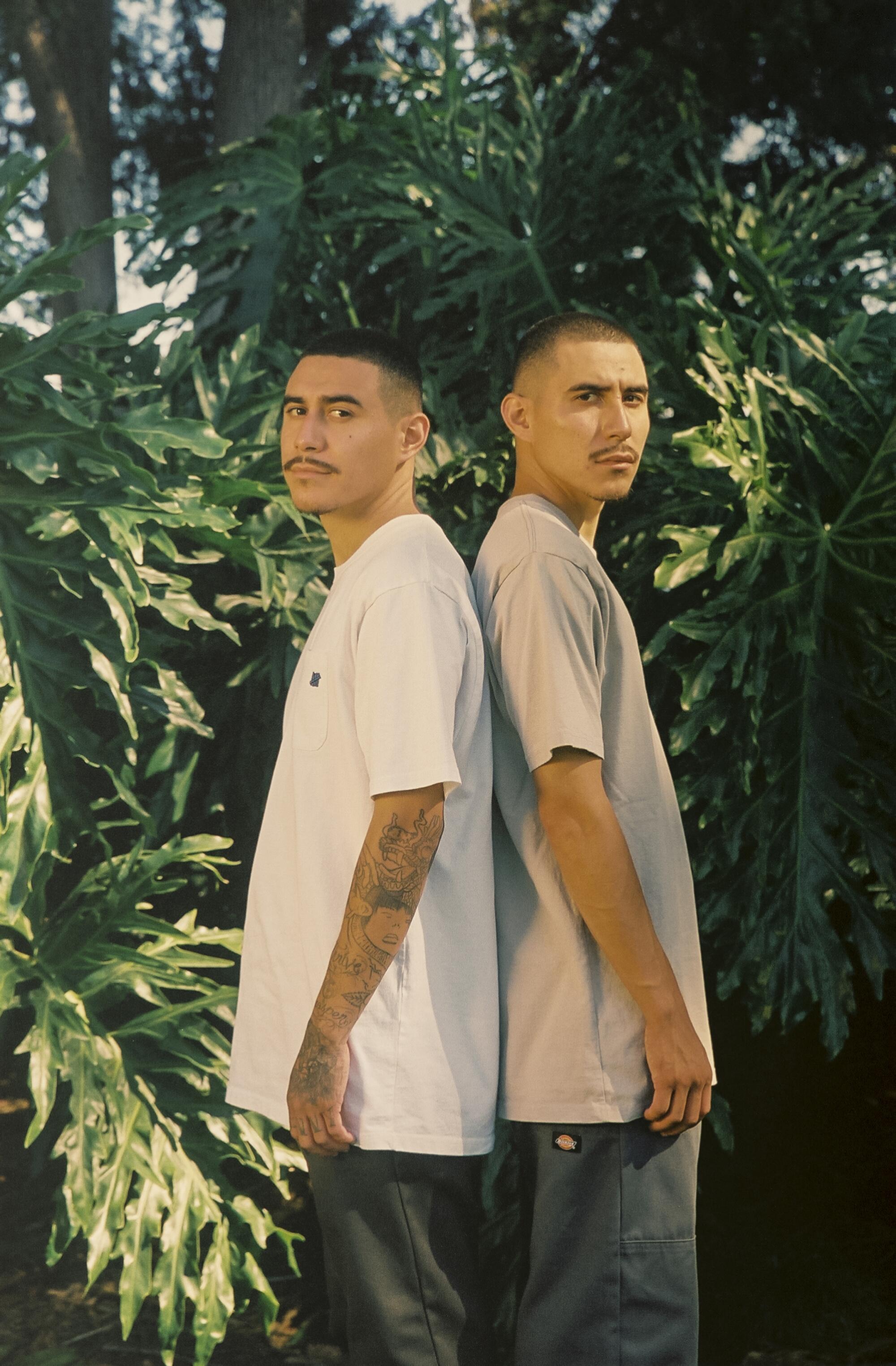
Hector: It was definitely a realization. We’re not going to say at the beginning it was natural. The posing wasn’t even natural, I was pretty stiff. But seeing how things gradually got bigger — from doing free shoots, to just getting free clothes to seeing our first set of checks — we were getting used to it. It really showed us a different realm. We came from somewhere so small, yet we’re here in a place so big.
Jose: When we first started it was with really small, local L.A. brands. Our first big gig that was a big check for us — when we knew that we wanted to continue — was a campaign with Levi’s 501. But also I think for us, when we’re doing these big gigs and whatnot, we carry our true identity and our roots. We’re always together so we don’t feel alone on these sets. Having someone there makes it more relaxed and comfortable
With each collection, the experimental designer traces the myriad inspirations from the city that she draws from regularly: her community, the evening light, the scrambled architecture of L.A.
Hector: We do have an advantage compared to other people. But when we’re on set, we try to communicate with all these other people because everyone is just the same — and if people aren’t able to talk with the same energy then, you know …
Jose: I think it comes from our backgrounds, our parents, just being grateful for the little things we have in these luxury places. After [a shoot] I’m gonna go grab myself some tacos. I’m gonna become Hispanic again [laughs]. People see us doing these shoots, but at the end, they also see us as the twins from the block. We’re always going to come back to that environment. We’re going to come back to our people.
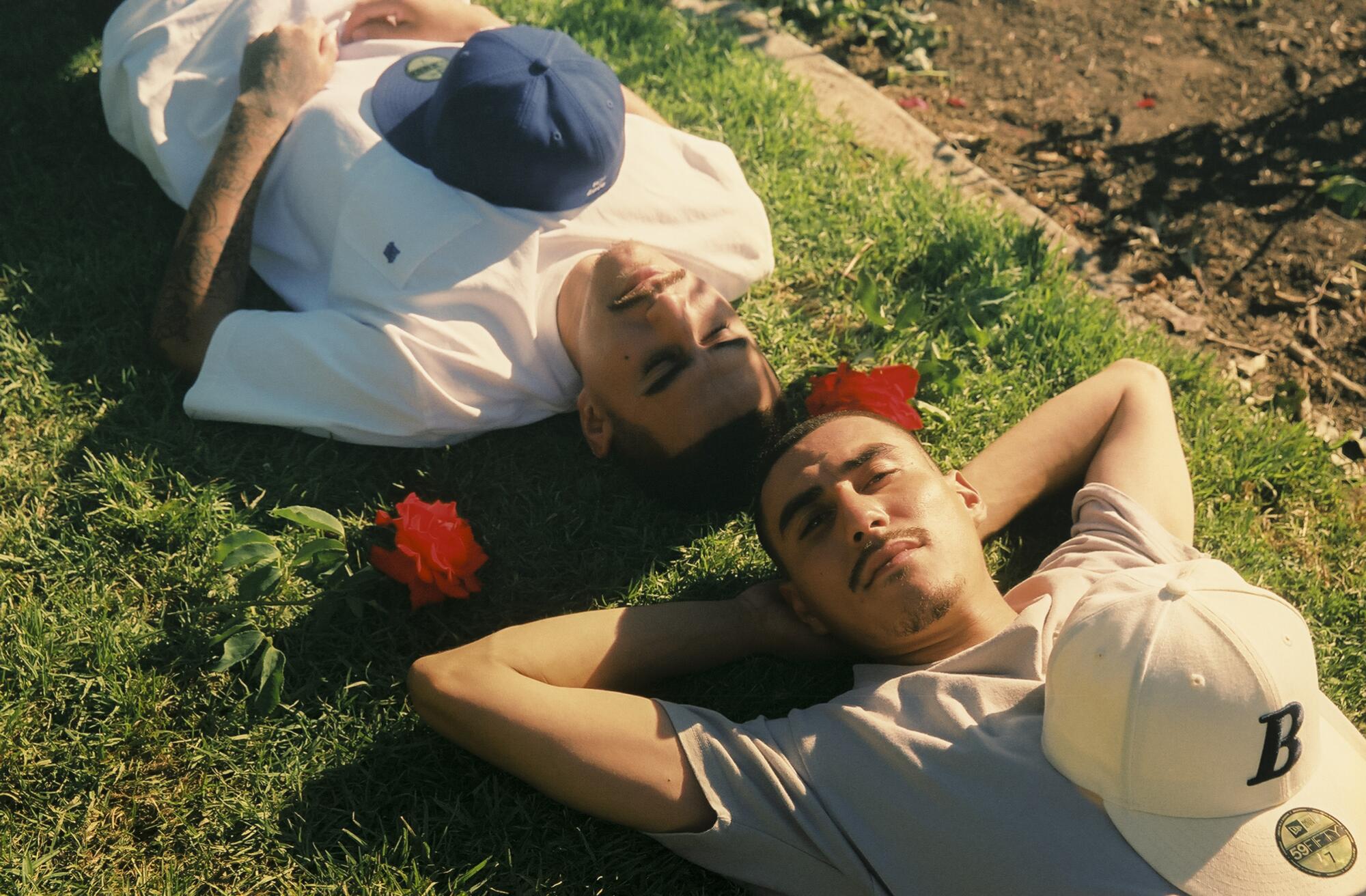
Hector: It’s a power to have a twin because it’s a bond that — it’s hard to explain, but I think we just have this aura that we carry every time we step in a room. We have this higher charisma.
Jose: At the beginning, once again, it was like, “Oh, it feels weird to pose.” Where now people are just shooting and I’m like bro, “We didn’t do anything. It’s so natural. We just stood there.” We like to goof around. We’ve had comments from the photographer like, “We love how you guys goof around, but when it’s time to have the camera right in front of you, you can just snap out of it and go straight to work.” We can turn it off and turn it back on whenever we want.
Hector: It’s funny because anyone who knows us, knows we constantly argue. All the fighting, talking smack, we set that aside when it comes down to being in front of the camera. I think that’s where it really shows: the love, the tenderness. You’ll most likely see it in the photos.
Jose: The first thought is like, “Let’s just give them that brotherly love that we really want to show them.” It’s our gut feeling. We really want to do it for our own selves.
Hector: We know that we’re going to capture a moment, with or without the camera. I think we already capture a moment with the eyes of people looking at us — so it doesn’t even matter if the cameras are there. Even though we’re the same, we do things a little differently at times. There’s been times where we will get booked separately, and it’s pretty cool because you get to see more of a shine on my brother himself. Even though the things that we do together stand out, there’s still that impactful image like when it comes down to just being one person.
Jose: He’s very observant. Very private. Very conservative. More in the shadows a little bit. I like being in the spotlight. I was born first. He came out second. That’s how it is in real life.
Hector: Because of modeling, I was able to make up this character to be in the spotlight. It really does feel like a story. Like I’m in a movie or something. It’s a story about us.
Jose: It takes us out of our comfort zone a little bit because it’s something new, but it also allows us to gain new skills. We take those skills, take notes and adapt those to our everyday lives. Knowledge is a powerful thing. Modeling really changed our lives forever, [it’s] the reason we’re able to move up. There have been a lot of good moments. But a recent one was a Calvin Klein campaign that we did with our parents. That was a big moment for us all, because it was our first time exposing our parents to the field that we work in, giving them a little taste of what we do. This is so new to them. We want to show them the American Dream. For them, seeing us be in front of the camera and seeing us on social media, it’s an amazing feeling. We want to work harder for them now.
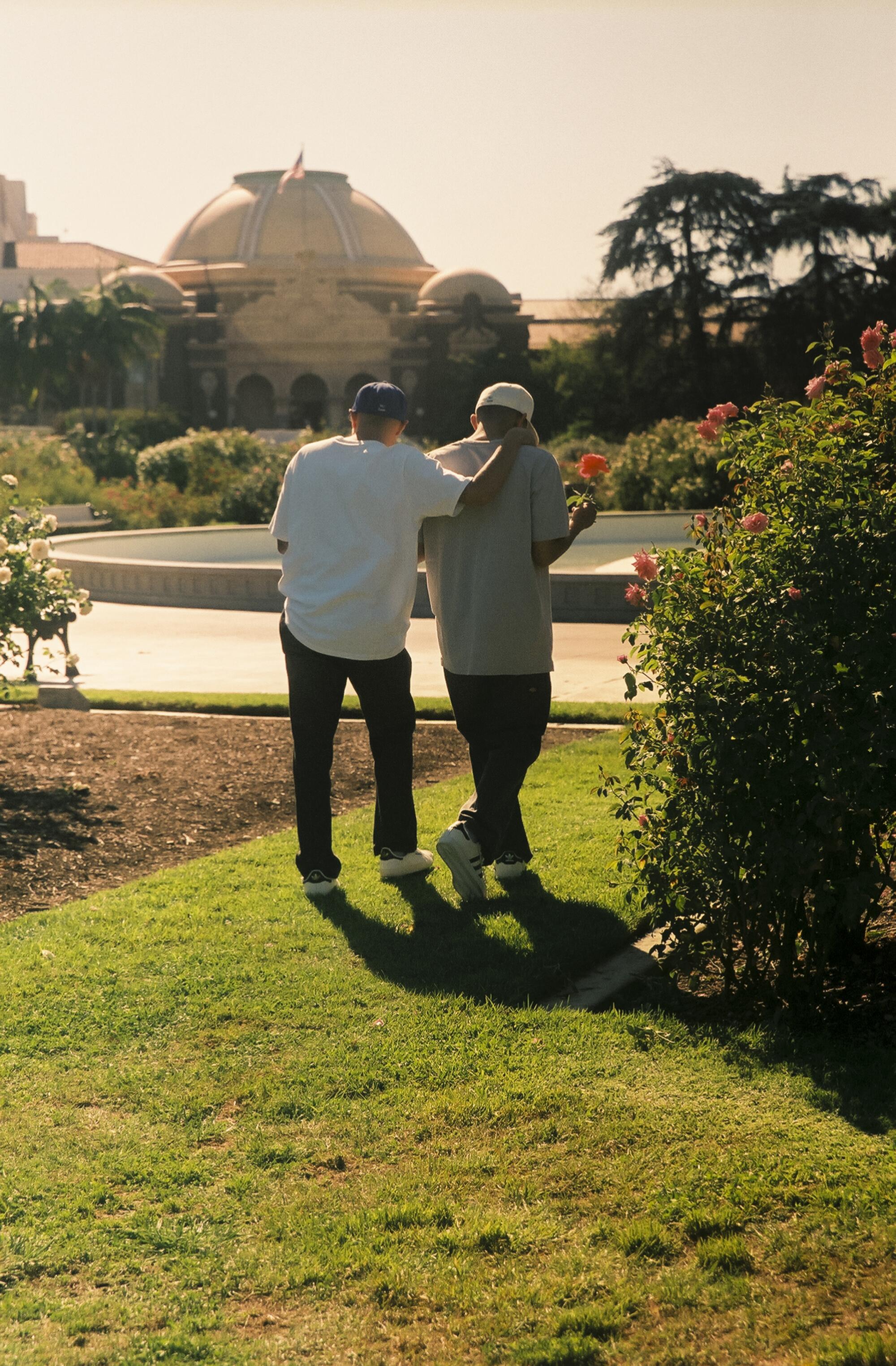
Hector: My favorite project we’ve done was when we got flown out because we have never had a chance to do that. We flew to London for Burberry. It was cool, shooting somewhere completely outside of L.A. Somewhere new.
Jose: I remember we were just sitting there like, “We’re these kids from the ghetto. These people don’t know us and they’re just like, ‘Yo, we want you guys out in London.’” It changed our lives for sure.
Hector: Next thing you know we ‘bout to be [modeling for] Gucci or something.
Lettering design by Vivi Naranjo/For The Times; typeface: Goliagolia
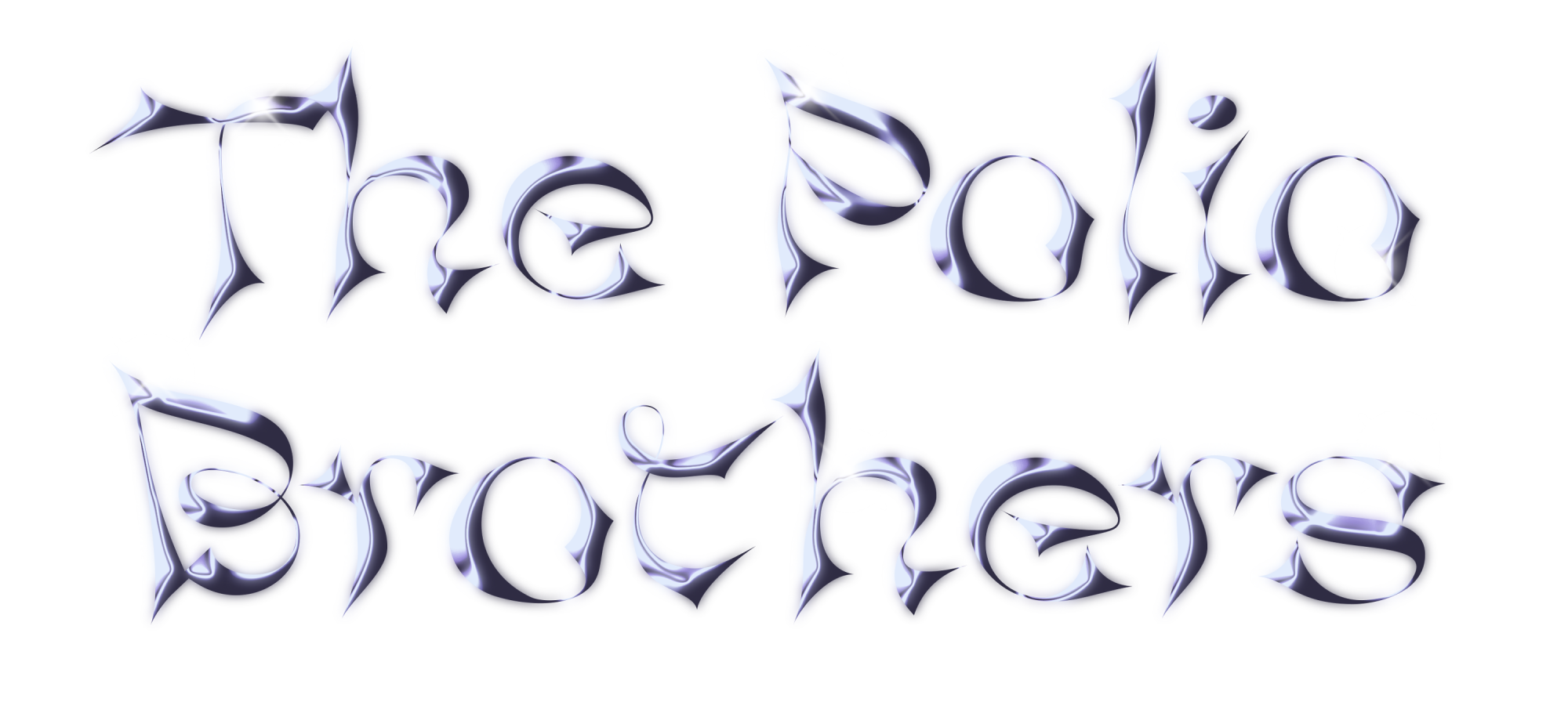
More stories from Image
